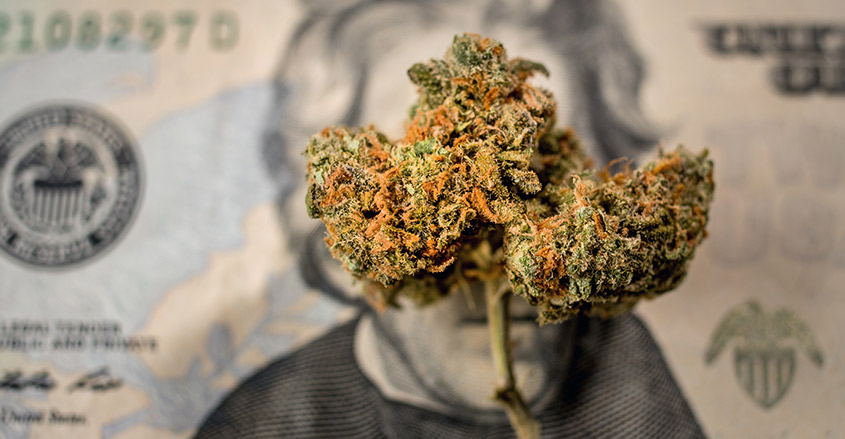Demand, meet supply. And prices fall. Oregon authorities say that the state has a glut of more than 1 million pounds of legal marijuana.
The state has a population of about 4.1 million people. That’s about a quarter-pound of pot for every resident for a drug that normally is sold in fractions of an ounce.
Unsurprisingly, statewide prices for legal marijuana have fallen by half, report the state’s legal pot producers.
An analysis study by Oregon’s Office of Economic Analysis reveals that the per-gram retail cost of legal marijuana was $7 in 2017. In 2015, the per-gram cost was about $14.
Oregon has a 17% tax on all sales of recreational marijuana. Naturally, tax receipts are falling as fast as prices.
The national, widespread market oversaturation for legal marijuana is driving falling prices for legal pot.
To date, 38 American states and the District of Columbia had legalized, decriminalized or authorized marijuana for medicinal purposes.
The oversupply crisis has driven Oregon regulators to halt the processing of new seller licenses.
On May 30, 2018, the Oregon Liquor Control Commission announced it will set aside all newly received applications after June 15.
This move should in time help to clear massive product oversupply. Yet new applications continue pouring in unabated.
To date, the commission has issued over 1,900 licenses to grow or legally sell marijuana. It also issued more than 29,000 permits for those working in the legal marijuana industry.
Oregon legislators may have over-earnestly tried to proactively shape and the direct the dawning legal market for weed in the state.
The goal was to end the drug black market, in part by allowing legal, regulated supply. State authorities early on encouraged as many legal growers as possible to enter the market.
There were no caps on license issuance, business could apply for multiple licenses and fees were relatively inexpensive.
Black market
According to Senator Ginny Burdick (D) of Portland, legalization was meant to stunt the unregulated medical marijuana industry as well.
“We really tried to focus on policies that would rein in the medical industry and snuff out the black market as much as possible,” Burdick said. She acknowledges that those decisions led to the current oversupply crisis.
U.S. Attorney Billy Williams wants the state finds solutions with more legislatively strategic intent.
“It’s a failing of the state for not stepping back and taking a look at where this industry is at following legalization,” Williams said.
Oregon Craft Cannabis Alliance founder Adam Smith believes that 70% of Oregon’s legal pot producers could go out of business if consumers don’t start buying up supplies soon.
“We could turn around in three to four years and realize that 10 to 12 major companies own a majority of the Oregon industry and that none of it is really based here anymore,” said Smith.
“The Oregon brand is really all about authenticity. How do we save that?”
Oregon was the first American state to legislatively decriminalize ownership of small amounts of marijuana in 1973.
The state tried unsuccessfully to legalize marijuana for decades. Oregon eventually became one of the first American states to legalize the recreational use of marijuana in 2014.


